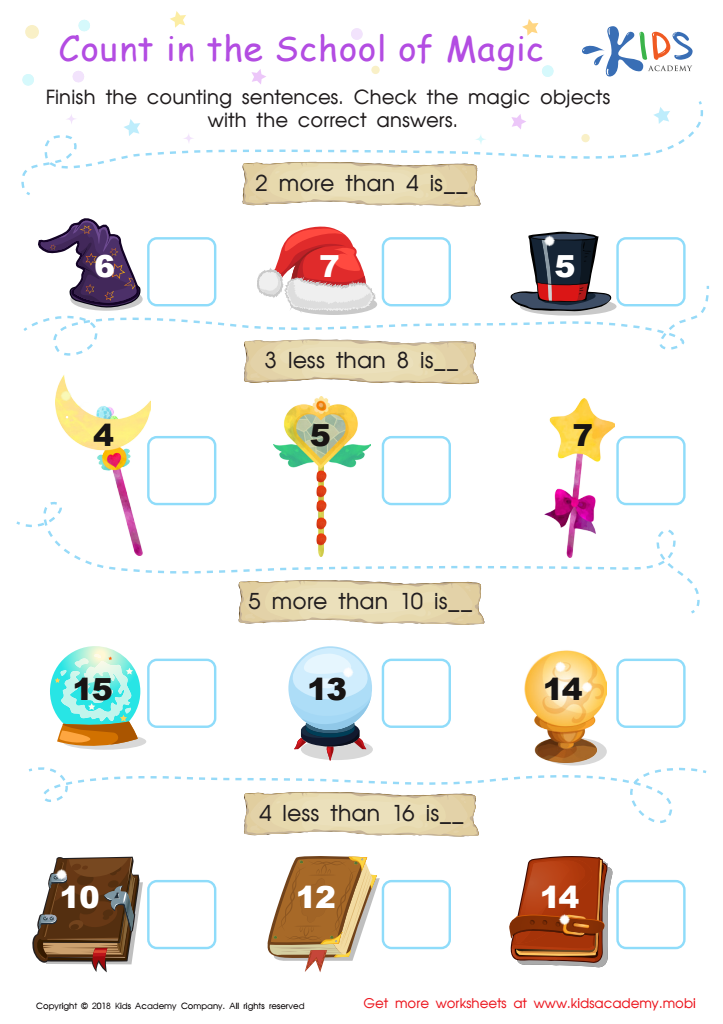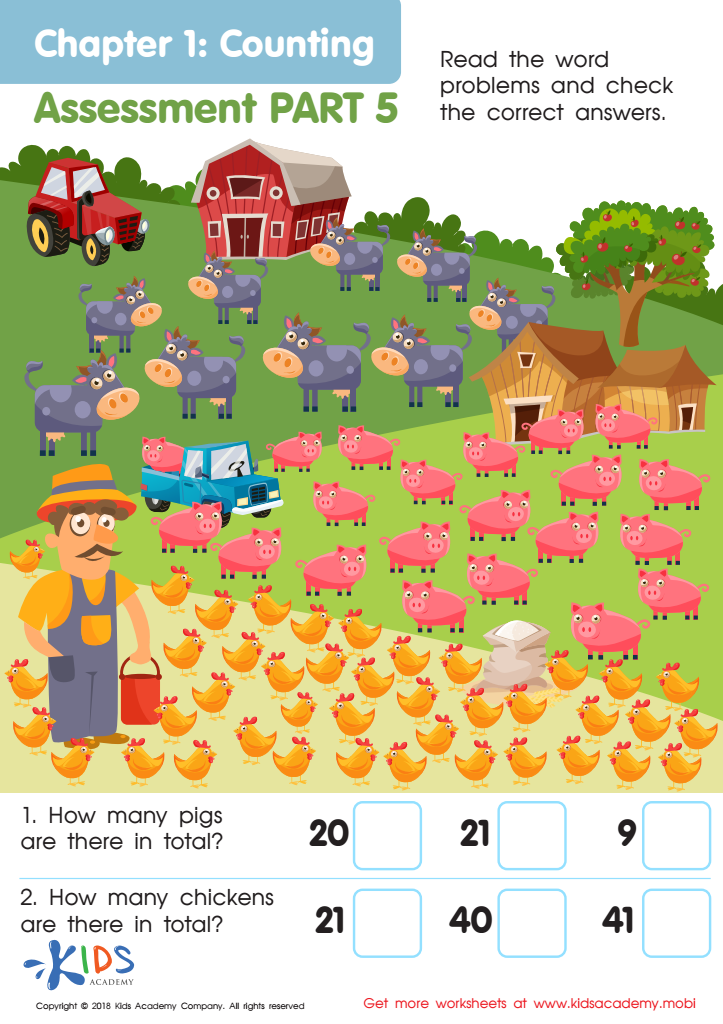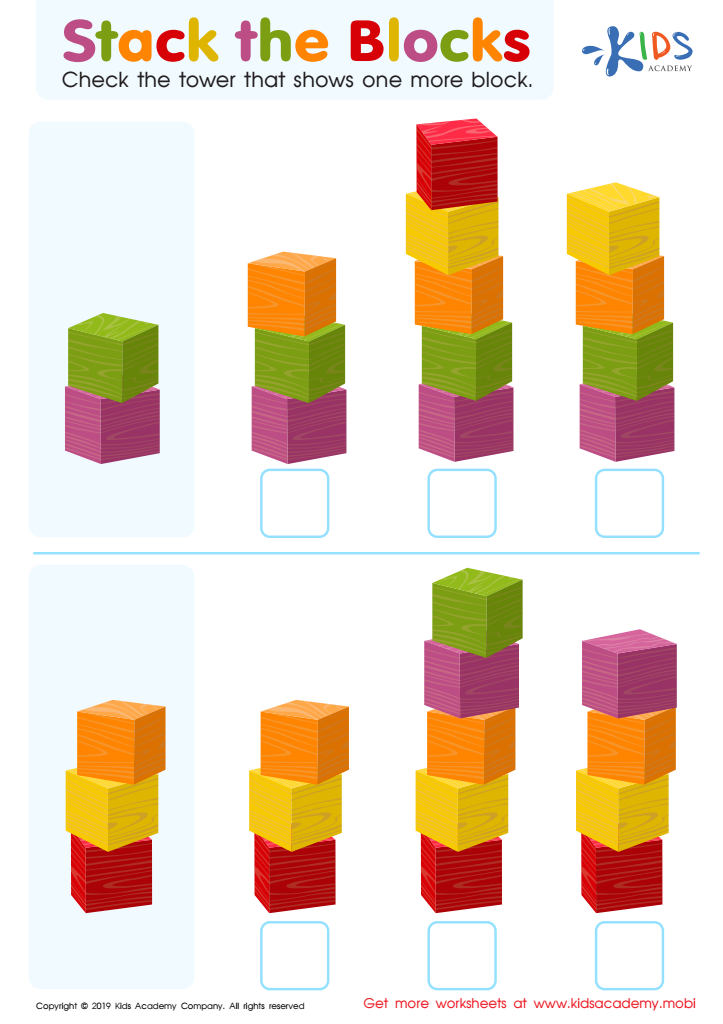Spatial reasoning Numbers Worksheets for Ages 3-6
3 filtered results
-
From - To
Explore our engaging Spatial Reasoning Numbers Worksheets for ages 3-6, designed to enhance young learners' understanding of numbers through spatial awareness activities. These worksheets promote essential skills like shape recognition, counting, and problem-solving in a fun, interactive way. Vivid illustrations and playful exercises captivate children's interest while encouraging them to visualize numbers and their relationships in space. Our online resources also foster independent learning, making it easy for parents and teachers to support early math development at home or in the classroom. Equip your child with the foundational skills they need to thrive in mathematics with our thoughtfully crafted worksheets!


Count in the School of Magic Worksheet


Counting: Assessment 5 Worksheet


Stack the Blocks Worksheet
Spatial reasoning plays a crucial role in cognitive development for children aged 3-6, making it essential for parents and teachers to prioritize its cultivation. This skill involves understanding the relationships between objects in space, such as shape, size, and direction. Engaging young learners in activities that promote spatial reasoning not only underpins mathematical thinking but also enhances problem-solving and critical thinking skills.
Research shows that strong spatial reasoning abilities are linked to better performance in math and science, vital subjects that lay the groundwork for future academic success. For young children, activities like building with blocks, puzzles, and navigating through simple mazes can foster these skills. These playful experiences stimulate curiosity and encourage exploration, helping children develop confidence in their abilities.
Additionally, spatial reasoning supports literacy development. Many literacy concepts, like understanding directionality in reading or language structure, benefit from strong spatial awareness.
By integrating spatial reasoning activities into daily learning environments, parents and teachers can create enriched experiences that promote overall cognitive growth, laying the foundation for lifelong learning. Recognizing the significance of spatial reasoning in early education ensures children are better prepared for the challenges ahead in their academic journeys.
 Assign to My Students
Assign to My Students




















